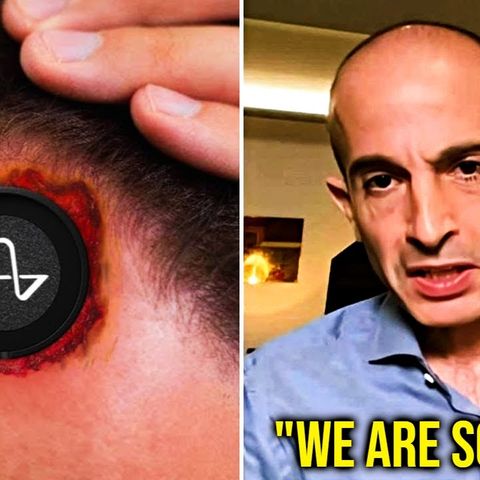World Economic Forum: AI Can Hack Us DANGER

Download and listen anywhere
Download your favorite episodes and enjoy them, wherever you are! Sign up or log in now to access offline listening.
World Economic Forum: AI Can Hack Us DANGER
This is an automatically generated transcript. Please note that complete accuracy is not guaranteed.
Description
Yuval Harari's blistering warning to Davos. B x C x D = AHH! Which means? Biological knowledge multiplied by computing power multiplied by data equals the ability to hack humans,...
show moreNow in the past, many governments and tyrants wanted to do it, but nobody understood biology well enough and nobody had enough computing power and data to hack millions of people. Neither the Gestapo nor the KGB could do it. But soon at least some corporations and governments will be able to systematically hack all the people. We humans should get used to the idea that we are no longer mysterious souls – we are now hackable animals. That's what we are.
The power to hack humans can be used for good purposes – like providing much better healthcare. But if this power falls into the hands of a twenty-first-century Stalin, the result will be the worst totalitarian regime in human history. And we already have a number of applicants for the job of twenty-first-century century Stalin.
Just imagine North Korea in twenty years, when everybody has to wear a biometric bracelet which constantly monitors your blood pressure, your heart rate, your brain activity twenty-four hours a day. You listen to a speech on the radio by the great leader and they know what you actually feel. You can clap your hands and smile, but if you're angry, they know, you'll be in the gulag tomorrow.
And if we allow the emergence of such total surveillance regimes, don’t think that the rich and powerful in places like Davos will be safe, just ask Jeff Bezos. In Stalin’s USSR, the state monitored members of the communist elite more than anyone else. The same will be true of future total surveillance regimes. The higher you are in the hierarchy – the more closely you’ll be watched.
Already today billions of people trust the Facebook algorithm to tell us what is new, the Google algorithm tells us what is true, Netflix tells us what to watch, and the Amazon and Alibaba algorithms tell us what to buy.
In the not-so-distant future, similar algorithms might tell us where to work and who to marry, and also decide whether to hire us for a job, whether to give us a loan, and whether the central bank should raise the interest rate.
Now we humans are used to thinking about life as a drama of decision-making. What will be the meaning of human life, when most decisions are taken by algorithms? We don’t even have philosophical models to understand such an exsistence. The twin revolutions of infotech and biotech are now giving politicians the means to create heaven or hell, but the philosophers are having trouble conceptualizing what the new heaven and the new hell will look like. And that’s a very dangerous situation. If we fail to conceptualize the new heaven quickly enough, we might be easily misled by naïve utopias. And if we fail to conceptualize the new hell quickly enough, we might find ourselves entrapped there with no way out.
Information
| Author | Jolly West |
| Organization | Gemini ♊️ key Productions |
| Website | - |
| Tags |
Copyright 2024 - Spreaker Inc. an iHeartMedia Company

Comments